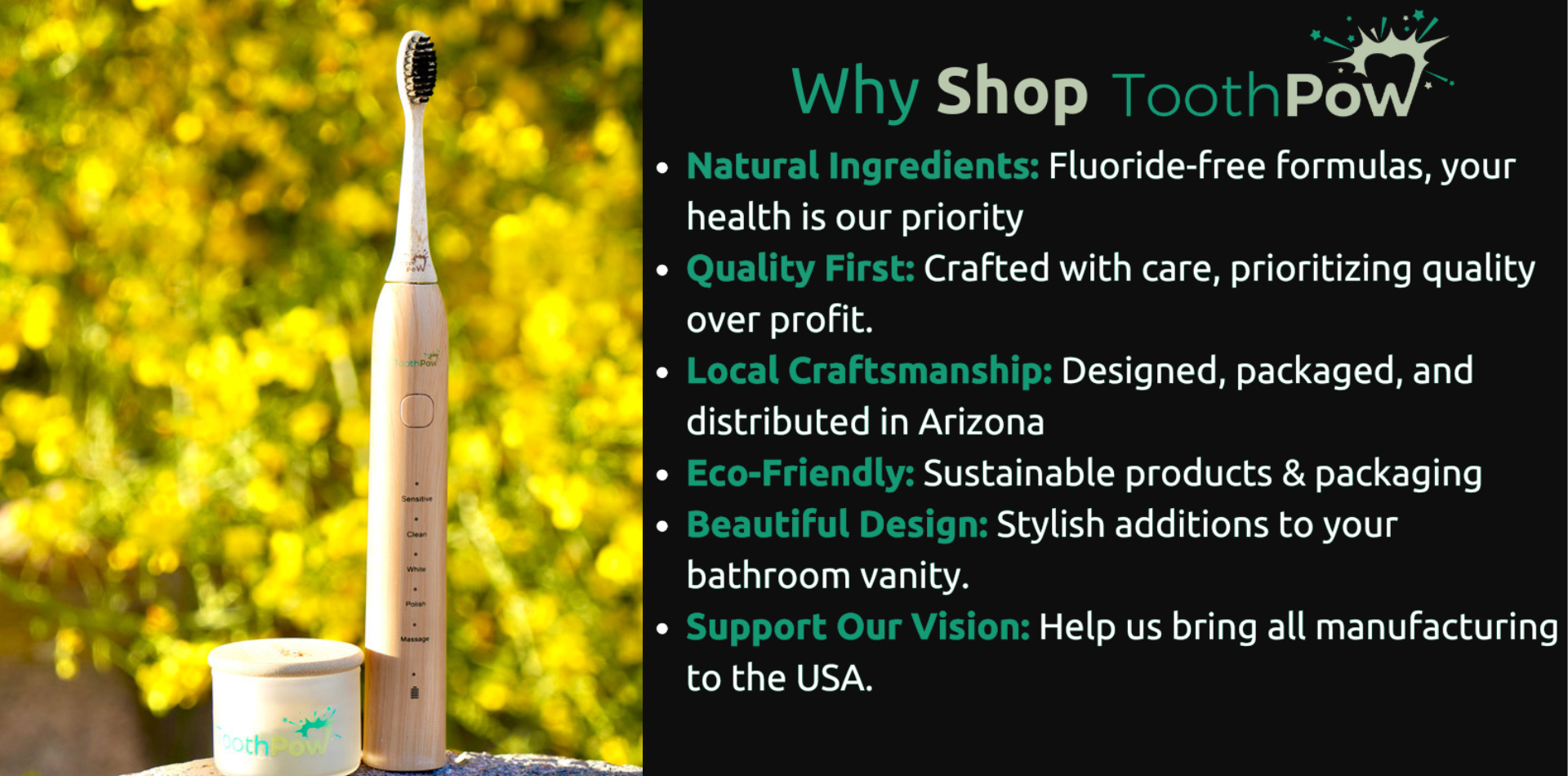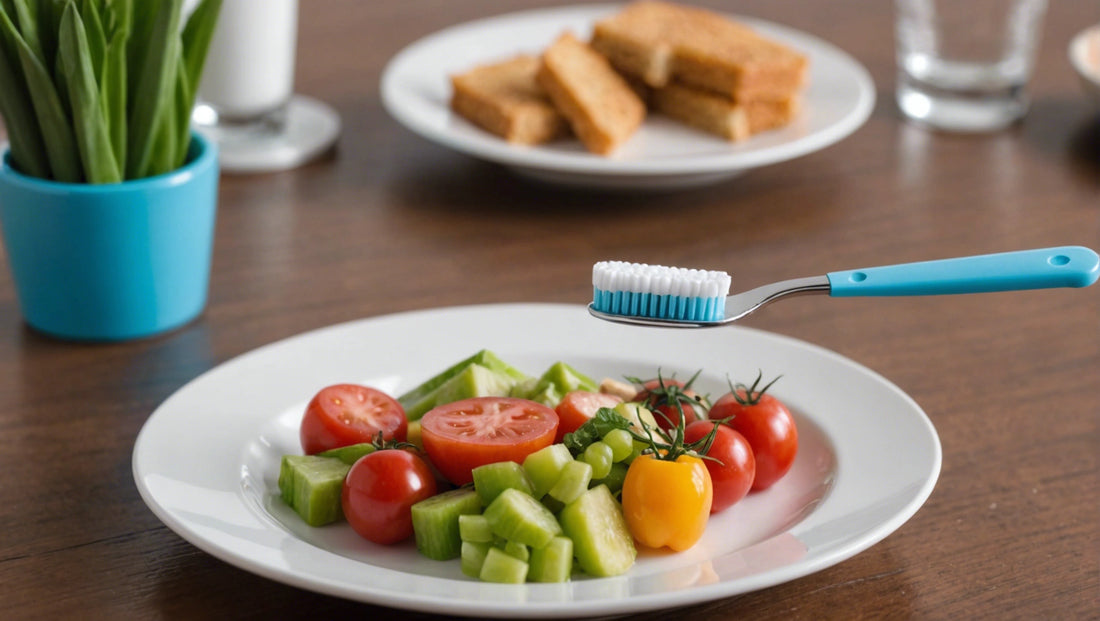Introduction
We’ve all been there: you’ve just brushed your teeth but find yourself hungry or craving a snack. You might wonder, "How long should I wait to eat after brushing my teeth?" Understanding the right timing can help you maximize the benefits of your oral hygiene routine and protect your teeth from potential damage. This article will discuss the importance of waiting at least 30 minutes after brushing before eating and provide tips on what to do if you can't wait.
In this article, we’ll cover:
Why you should wait at least 30 minutes before eating again
What to do if you can’t wait
The importance of allowing toothpaste ingredients to work their magic
Why Is It Important to Wait to Eat After Brushing?
Toothpaste's Protective Functions
Toothpaste does more than just clean your teeth; it also protects them. Ingredients such as nano-hydroxyapatite (n-Ha) and other protective agents create a barrier on your teeth. This barrier helps protect enamel from abrasion and acidic foods. For instance, nano-hydroxyapatite is a compound found in your tooth enamel, and its presence in toothpaste helps remineralize and strengthen your teeth after brushing.
pH Balance in the Mouth
The pH level in your mouth can significantly impact your oral health. After brushing, your mouth's pH level needs time to stabilize. Eating immediately after brushing can disrupt this balance, making your teeth more vulnerable to erosion and decay. Your saliva naturally helps to neutralize acids in your mouth, but it needs time to do its job effectively.
Risk of Enamel Erosion
Eating acidic foods too soon after brushing can soften your enamel, leaving it more susceptible to erosion. Allowing a buffer period after brushing gives your saliva time to neutralize acids and protect your enamel. For example, consuming citrus fruits or soda shortly after brushing can exacerbate enamel erosion, leading to increased sensitivity and potential cavities.
For more information on maintaining a balanced oral pH, visit ToothPow’s oral health blog.
What Happens If You Don't Wait?
Washing Away Protective Ingredients
Eating or drinking right after brushing can wash away the protective layer that toothpaste ingredients like n-Ha provide. This leaves your teeth more vulnerable to decay and damage. The protective agents need time to bond with your teeth and form a shield against harmful bacteria and acids.
Increased Risk of Acid Damage
Acidic foods and beverages can further soften enamel that has just been brushed, increasing the risk of enamel erosion and tooth decay. When you eat or drink immediately after brushing, you compromise the protective effects of your toothpaste, leading to potential long-term damage.
Reduced Efficacy of Toothpaste
Not waiting can reduce the efficacy of the toothpaste, as it needs time to work and provide maximum protection to your teeth. By allowing at least 30 minutes, you ensure that the active ingredients have sufficient time to strengthen your enamel and provide lasting protection.
For more detailed information on protecting your enamel, check out ToothPow’s guide to enamel care.
Tips If You Can't Wait to Eat After Brushing
Rinse Your Mouth with Water
After brushing and before eating, rinse your mouth with water to remove any excess toothpaste. This helps minimize the risk of ingesting toothpaste ingredients like fluoride. While this might reduce some protective effects, it ensures that you’re not consuming unnecessary chemicals.
Use Mouthwash
If you don’t have time to brush again after eating, try using a fluoride-free or hydroxyapatite mouthwash. This provides an extra protective layer on your teeth. Mouthwash can help neutralize acids and reduce the risk of enamel erosion, even if you can’t wait the full 30 minutes.
Choose Low-Acid Foods
If you must eat immediately after brushing, opt for low-acid foods such as vegetables, grains, and dairy products. These foods are less likely to cause enamel erosion. Foods like yogurt, cheese, and leafy greens can be gentler on your teeth and help maintain a neutral pH balance in your mouth.
For more tips on choosing the right foods, visit ToothPow’s nutrition and oral health blog.

The Importance of Toothpaste Ingredients for Oral Health
Nano-Hydroxyapatite (n-Ha)
Nano-hydroxyapatite is a naturally occurring mineral that makes up the majority of tooth enamel and bone. It is effective in remineralizing enamel, reducing sensitivity, and protecting against cavities. Studies have shown that n-Ha can be as effective as fluoride in preventing cavities and restoring enamel.
Other Protective Agents
Toothpaste ingredients such as xylitol and herbal extracts also provide protective benefits. Xylitol inhibits the growth of harmful bacteria, while herbal extracts have antimicrobial properties that promote overall oral health. These ingredients help create a balanced oral environment, reducing the risk of decay and gum disease.
For more information on the benefits of n-Ha, check out ToothPow’s guide to nano-hydroxyapatite.
FAQs
How Long Should You Wait to Drink Water After Brushing Your Teeth?
Unlike food, you don’t need to wait to drink water after brushing your teeth. Water has a neutral pH and won't affect the protective layer on your teeth. Drinking water can actually help rinse away any residual toothpaste and maintain a neutral pH in your mouth.
Is It Better to Brush Your Teeth Before or After You Eat?
It is generally better to brush your teeth after you eat. This helps remove food particles and reduces the risk of plaque buildup. However, if you need to brush before eating, try to wait at least 30 minutes after brushing to eat.
Is It OK to Drink Milk After Brushing Teeth?
Yes, drinking milk after brushing your teeth is generally safe. Milk is high in calcium and not highly acidic, so it won't pose a significant threat to your enamel. However, waiting a short while before drinking milk can ensure maximum protection.
Is It OK to Gargle Water After Brushing Teeth?
Yes, gargling water after brushing your teeth is fine. Water helps rinse away any excess toothpaste and maintains a neutral pH in your mouth. Gargling can also help remove any remaining debris or particles.
Can I Eat After 30 Minutes of Brushing Teeth?
Yes, waiting 30 minutes after brushing your teeth is ideal. This allows time for the toothpaste ingredients to work effectively and for your mouth's pH level to stabilize. Eating after this period ensures that your teeth are well-protected against acids and abrasion.
For more answers to common questions, check out ToothPow’s FAQ page.
Conclusion
Waiting at least 30 minutes after brushing your teeth before eating is crucial for maintaining optimal oral health. This practice allows the protective ingredients in your toothpaste to work effectively and helps prevent enamel erosion. If you can't wait to eat, follow our tips to minimize potential risks. By making informed choices and incorporating these practices into your daily routine, you can protect your teeth and enjoy better oral health.
For more tips and products to help maintain your oral health, visit the ToothPow website.

